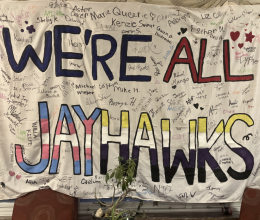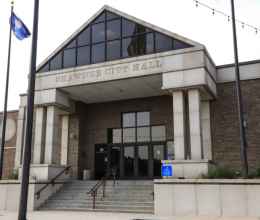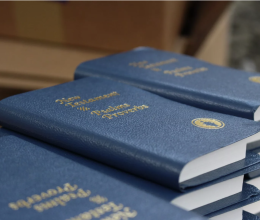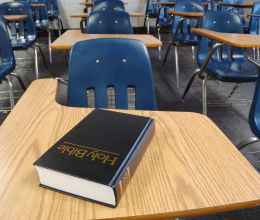On May 31, 2018, the ACLU of Kansas sued the Shawnee Mission School District (SMSD) and Kenneth Southwick, Interim Superintendent of SMSD, for censoring student protests and violating students' free speech rights during the April 20 walkouts nationwide protesting gun violence.
The students, from Hocker Grove Middle School and Shawnee Mission North High School, attempted either to engage in political debate about the subject of gun violence through participation in the student-led, school-permitted walkouts or to document the walkouts as student journalists. Instead of allowing students to exercise their First Amendment rights, the Shawnee Mission School District and its representatives unconstitutionally prohibited students from even mentioning the topic of "gun" or "gun violence" or seized equipment from students attempting to document the protests.
As the complaint stated, "When students resist the District's efforts at censorship, District officials interrupted students, ordered them to stop speaking, threatened students with discipline, and, in some cases, confiscated the tools that students were using to document the protests."
The walkouts were part of the nationwide day of protests in the wake of the tragic Parkland High School shootings in Florida and specifically demanded reforms intended to reduce the prevalence of gun deaths and school shootings in the United States. Avoiding words such as "gun" or "gun violence" in a discussion of the protests was impossible.
Student organizers had informed SMSD officials well in advance of the protests, providing them ample time to formulate a plan of action that would not infringe on the students' First Amendment rights. SMSD officials had also informed parents that students would be permitted to participate in the walkouts without risking discipline, while also making clear that the walkouts were student-led, optional, and not sponsored by the District. SMSD did not inform students that they were to avoid specific terms deemed too controversial to be allowed to protest, but SMSD did meanwhile issue a centralized directive to all building administrators to prohibit students from discussing guns, gun control, and school shootings during the walkouts.
The suit came after the ACLU sent the School District letters on April 26, 2018 and on May 7, 2018, on behalf of the students, demanding the District commit to a proposed corrective action for each impacted student, provide documentation, and commit to future conversations with specific apologies and acknowledgment that students' rights were violated. The district issued communications of apology to parents on April 23 and April 27 without actually conceding that its policies and actions were unconstitutional and demonstrating any movement to remedy its free-speech and free-press violations. In a special meeting of the SMSD Board, Interim Superintendent Kenneth Southwick gave an update on his investigation into the violations, confirming that the focus would be on many matters, but not acknowledging that students' free-speech rights were violated or how they would be better protected in the future.
The ACLU of Kansas sought declaratory and injunctive relief from the court on behalf of the students to remedy ongoing, irreparable harm to the students' First Amendment rights
On August 31, the Shawnee Mission School District filed a motion in the U.S. District Court to dismiss the lawsuit, claiming the district was within its rights in its actions during the April 20 rallies, doubling down on their mistakes rather than simply acknowledging their violation of student first amendment rights. Read the press release, the motion to dismiss, and our response.
On January 28, a federal court judge ruled that the lawsuit can go forward. Her order supported our assertion that our clients had plausible claims that the district violated their first amendment rights.
In March, a settlement was reached. It was approved by the court in April.
In the settlement, the Shawnee Mission School District would require First Amendment training for all administrators and adopt new policies for non-school sponsored events, offer apologies and $1 damage payments to the plaintiffs. While denying liability or that it violated any students’ rights under the first amendment or under the Kansas Student Publications Act, the settlement also required the District to:
- Adopt a policy prohibiting administrators from banning or excluding student journalists from on-campus events that are otherwise open to the student body, or confiscating student journalists’ equipment while they are attending such events, on the sole basis that they are student journalists;
- Agree to pay Plaintiffs’ counsel’s $40,000 in attorney's fees and costs associated with this case. Defendant agrees to remit payment for attorney’s fees and costs to Plaintiffs’ counsel within ten (10) days following the execution of this settlement agreement;
- Agree that the terms of this settlement shall not be confidential.



